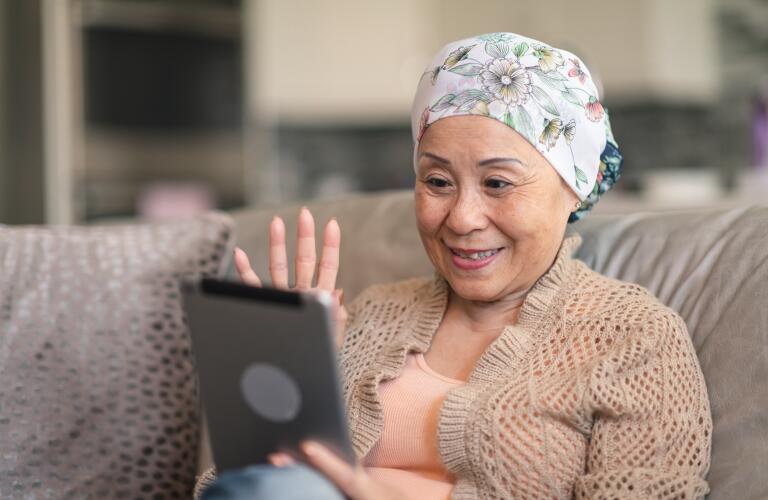
Chronic lymphocytic leukemia (CLL) affects more than 21,000 people in the United States. Fortunately, this form of leukemia usually progresses more slowly compared to other types of cancers. But certain complications, like frequent infections or other problems with your immune system, can be more likely to occur.
Thanks to advances in technology, many people are using telehealth to stay connected with their doctors. Telehealth enables patients to meet with their doctors using phone calls or video chats. If you’ve been diagnosed, receiving CLL treatment online may be crucial for protecting yourself from contagious diseases that could profoundly impact your health.
Because of the nature of this type of leukemia, people with CLL are more likely to experience frequent infections, most often in the lungs and other parts of the respiratory tract. With the discovery of the new coronavirus, it’s more important than ever to protect yourself from people or situations that could expose you to COVID-19. That’s where telehealth comes in.
You can use telehealth to connect with an online oncologist so you don’t have to visit a doctor’s office for certain aspects of your treatment. Many people connect using smartphones, tablets, or computers, but even a simple telephone line can be used for follow-up appointments and to receive advice. Your doctor may suggest telehealth consultations as a way to help protect you from infections, since you won’t be traveling to an office or waiting in a communal waiting area.
Since CLL is typically very slow to progress, your doctor may simply recommend a watchful waiting approach to treatment using telehealth technologies to conduct regular check-up appointments. During these visits, your doctor may ask about your health, including any evidence of infections or other symptoms you may experience.
Your doctor can also use a telehealth appointment to review any recent laboratory work you’ve had done, check to see how you’re responding to your medications, and plan further treatment once the watchful waiting period passes. In some cases, doctors use telehealth to screen for other health concerns and provide counseling or education if you have questions about your diagnosis.
You may also find you actually have better access to your healthcare team with telehealth than you did with traditional, in-office appointments. For many, telehealth visits offer greater convenience—in some cases, you may receive faster answers to simple questions you’ve emailed to your doctor. And sometimes, telehealth appointments are actually less expensive compared to regular doctor’s visits.
For your virtual doctor visit to be truly effective, it’s important to be sure you have a quiet space in your home where you won’t be interrupted. If you need to, seclude yourself in a spare bedroom or home office for your appointment, and let your family know you shouldn’t be disturbed during this time. You’ll need to be able to freely share personal information with your doctor, since this information can help guide your treatment. Write down any questions for your doctor in advance, and keep a pen and paper handy to take notes during your visit. Make sure you’ve downloaded any telehealth apps you’ll need, check to see that your webcam and microphone work, and ensure your devices are charged and your internet is strong.
Telehealth for chronic lymphocytic leukemia can be ideal for preventing your exposure to harmful germs which may lead to serious infections. Depending on your personal needs, telehealth could provide the right amount of interaction with your healthcare team, making it easier to manage your condition and get your questions answered. If you have CLL and you’re interested in telehealth, ask your doctor whether this could be an option for you.











